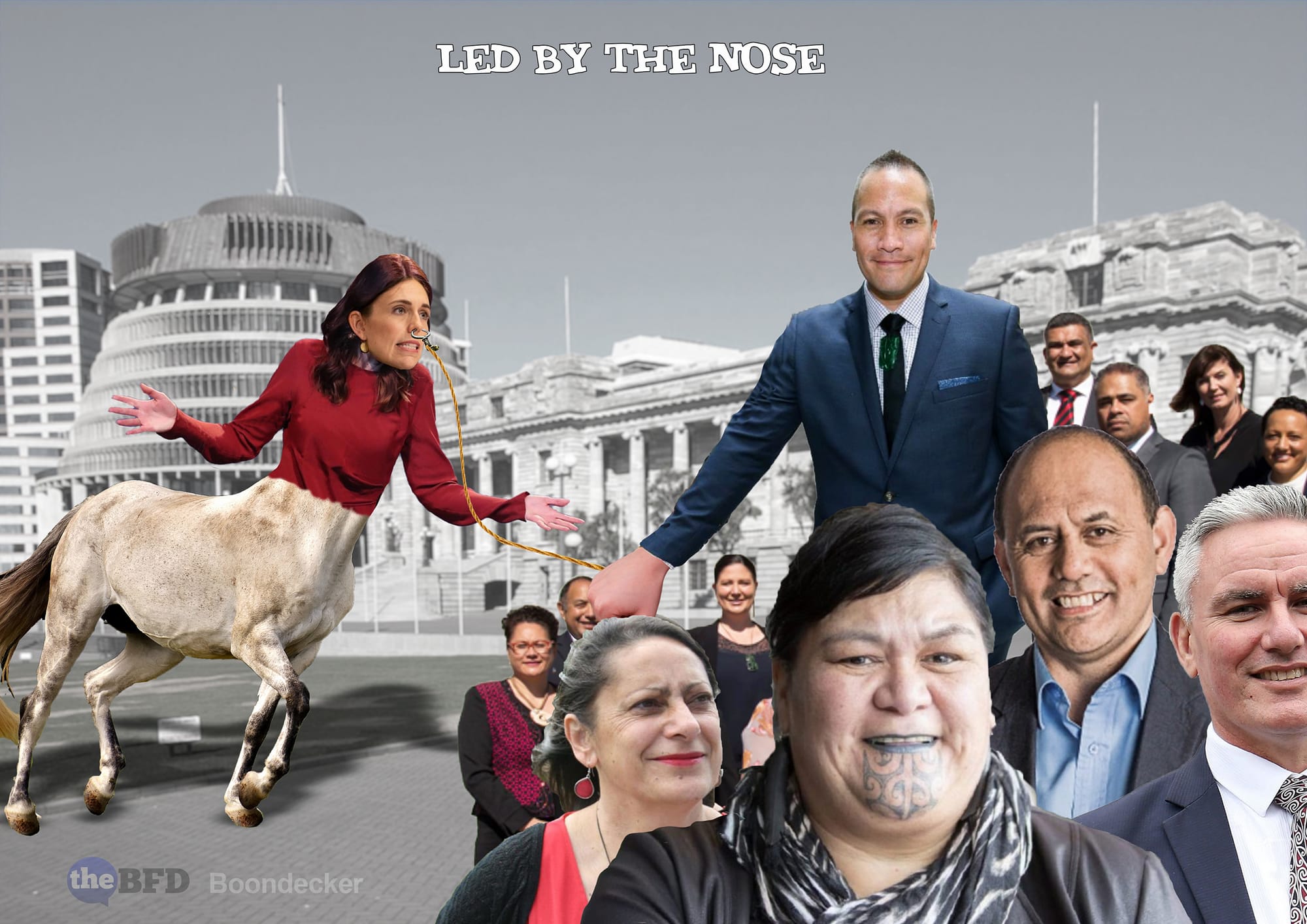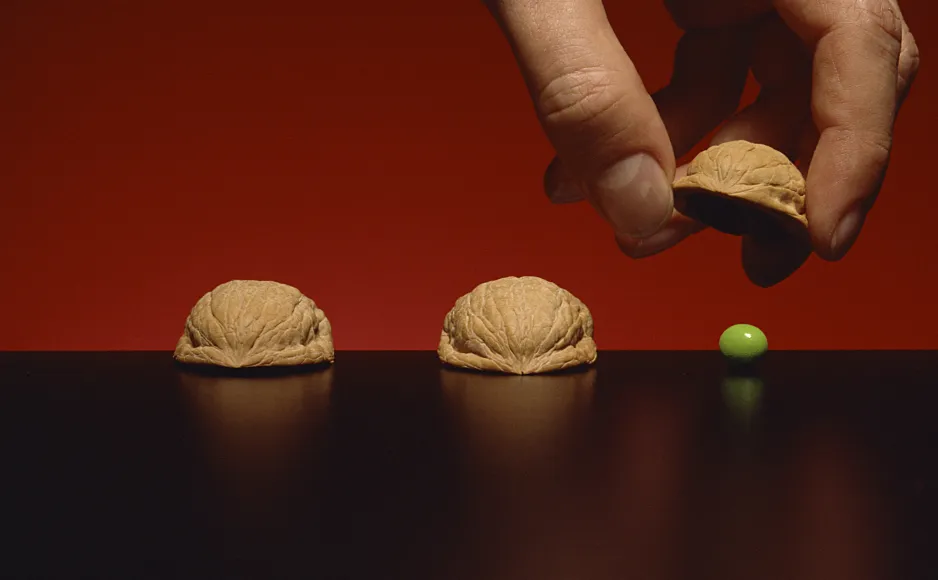Table of Contents
As meagre information about the appointment of Nanaia Mahuta’s younger sister, Tipa, to a pivotal role in Three Waters is gradually prised out of the government, it is becoming clear the Prime Minister has no intention of letting the public know exactly how that shell game played out.
What we do know is that Tipa’s elder sister transferred her power of appointment as Minister of Local Government to her Cabinet colleague Kelvin Davis in February 2021. He appointed Tipa to the chair of Te Puna – the Maori Advisory Group, which advises the new water regulator, Taumata Arowai, in May.
That ministerial power was returned to Nanaia Mahuta in June.
It is a matter of record that Ardern approved the transfer of power before the appointment was made — which is recommended by the Cabinet Manual as one way the Prime Minister can handle conflicts of interest.
However, Ardern is unwilling to say anything more about the transaction.
Describing the response to an OIA seeking further information, Sean Plunket wrote on The Platform:
“While there is information about why Jacinda Ardern approved this [transfer], she doesn’t want to reveal it.
“The leader of what we were promised would be the most transparent government ever is essentially hiding behind the Secretary to Cabinet, Michael Webster.”

Plunket recorded Webster’s response to the OIA request as:
“The Cabinet Office holds information that falls within the scope of this request. I am, however, withholding this information under the following sections of the OIA… to maintain the constitutional conventions for the time being which protect the confidentiality of advice tendered by Ministers of the Crown and officials.”
Stonewalling over the details of the appointment process for Tipa Mahuta will only get the Prime Minister so far, however. The appropriateness of the appointment has been the focus of most commentary, but the other equally pressing question is how the ongoing conflict of interest between the Mahuta sisters will be handled.
And it appears that Ardern is determined to be every bit as evasive on this score too.
When National MP Paul Goldsmith asked via a Written Parliamentary Question whether Ardern thought the appointment of Tipa Mahuta to the position of chair of the Maori Advisory Group gave rise to a “perceived or real conflict of interest due to [Tipa’s] relationship to Hon Nanaia Mahuta”, Ardern replied that Mahuta had followed the Cabinet Manual’s advice to transfer the power of appointment to another minister.
But what is interesting — and significant — is that Ardern gave exactly the same answer to a further question by Goldsmith about Tipa Mahuta’s “ongoing status as chair of Te Puna [Maori Advisory Group]” and whether that gave “rise to a perceived or real conflict of interest due to her relationship to Hon Nanaia Mahuta”.
By offering the same answer to two different questions, it seems Ardern was hoping no one would notice she had avoided explaining how the ongoing relationship would be managed.
As the pseudonymous “Thomas Cranmer” — who has been tweeting his analysis regularly since early May — wrote:
“The temporary transfer to Davis does not address the ongoing conflict that arose (and continues to exist) once the temporary power was handed back to Mahuta.”
When I emailed Paul Goldsmith to ask whether “Ardern has indicated anywhere that she understands the difference and has addressed the ongoing problem”, his colleague Simeon Brown, who is leading National’s inquiries, replied on his behalf:
“I don’t believe so. She has simply focused on the way the appointment process was made, not on how things have been managed going forward.”
Nanaia Mahuta has been more forthcoming than her leader in explaining how the ongoing conflict of interest will be dealt with but unfortunately, she has not been entirely convincing.
When Paul Goldsmith asked her, “What specific actions, if any, has she or her staff and/or officials taken to address any perception of a conflict of interest involving herself and Tipa Mahuta who is the chair of Te Puna – the Maori Advisory Group to Taumata Arowai?”, Mahuta replied that she had “delegated decisions regarding the appointments to another minister [Kelvin Davis]”.
She added that “officials” had told Davis “the risk of any potential conflict of interest regarding the appointment of Tipa Mahuta was mitigated by the fact that Te Puna – the Maori Advisory Group advises the board of Taumata Arowai rather than the minister.”
However, the implication that Tipa Mahuta deals only with Taumata Arowai is far from correct. In the Terms of Reference agreed between Taumata Arowai and Tipa as chair of Te Puna (signed by her on 26 April 2022), it was made clear that:
The chair, who “plays a key role in the success of Taumata Arowai”, will:
“on behalf of Te Puna, represent and act as the primary conduit for communication and engagement, including with the minister, iwi/Maori and other key stakeholders”.
So Tipa Mahuta’s role — as “the primary conduit” with Taumata Arowai — is to engage with the minister.
And this can’t even be interpreted as her simply acting as a go-between who will relay what Taumata Arowai has decided. A Letter of Expectation sent by Nanaia Mahuta in November last year makes it clear that Taumata Arowai is obliged to “implement” what the Maori Advisory Group instructs it to do.
Tipa Mahuta is clearly the linchpin in the Three Waters set-up — with her sister, the minister, to one side of her, and Taumata Arowai on the other.
In that sense, it would appear Nanaia Mahuta’s claim that her sister “advises the board of Taumata Arowai rather than the minister” is, at the very best, a partial truth. It certainly doesn’t accurately reflect Tipa Mahuta’s crucial two-way role.
In her official response to Goldsmith, Nanaia Mahuta also said:
“To further mitigate any perceptions of a conflict of interest, Te Puna – Maori Advisory Group has appointed a deputy chair to support in managing the relationship. Any meetings I attend that require the chair of Te Puna – Maori Advisory Group to attend are also attended by the Taumata Arowai board chair.”
The only conclusion any reasonable observer could derive from the minister effectively requiring a chaperone when meeting her own sister — as well as appointing a deputy to provide support — is that the conflict of interest is so egregious that extraordinary measures are required to pretend it can be effectively managed. In fact, they simply draw attention to the marked departure from ministerial propriety.
One question that calls out to be answered, however, is why Ardern — who as Prime Minister is ultimately responsible for managing her ministers’ conflicts of interest — not only allowed but actively facilitated such an extraordinary set-up.
Why did she not simply insist that, given the close working relationship between the chair of the advisory group and the minister, Tipa Mahuta should not have even been considered for the role?
Some might conclude it is further evidence that Ardern may be Prime Minister in name but in practice she serves at the indulgence of the powerful Maori caucus.

Simeon Brown summed up the situation in an email to this writer:
“I think there are concerns around how this whole process has been managed. Ultimately, New Zealand is a small country and from time to time conflicts or perceived conflicts will exist.
“What is most important is that the government is transparent about the selection process, why they believe the person appointed was best for the job, how they met the criteria, and that there was no one else available who could have done the job to prevent a conflict or perceived conflict of interest from arising.”
Ardern and Mahuta have yet to adequately explain these issues, particularly the last point. It remains the most baffling part of the saga: why was the position as chair of the advisory group not given to another capable Maori bureaucrat whose appointment would not have stirred up a hornets’ nest of suspicion that something underhand was going on?
Or to put it another way, why was giving such a powerful role to Nanaia Mahuta’s sister so important to both the Prime Minister and the Minister of Local Government that they were willing to risk widespread condemnation when it could have been so easily avoided?









